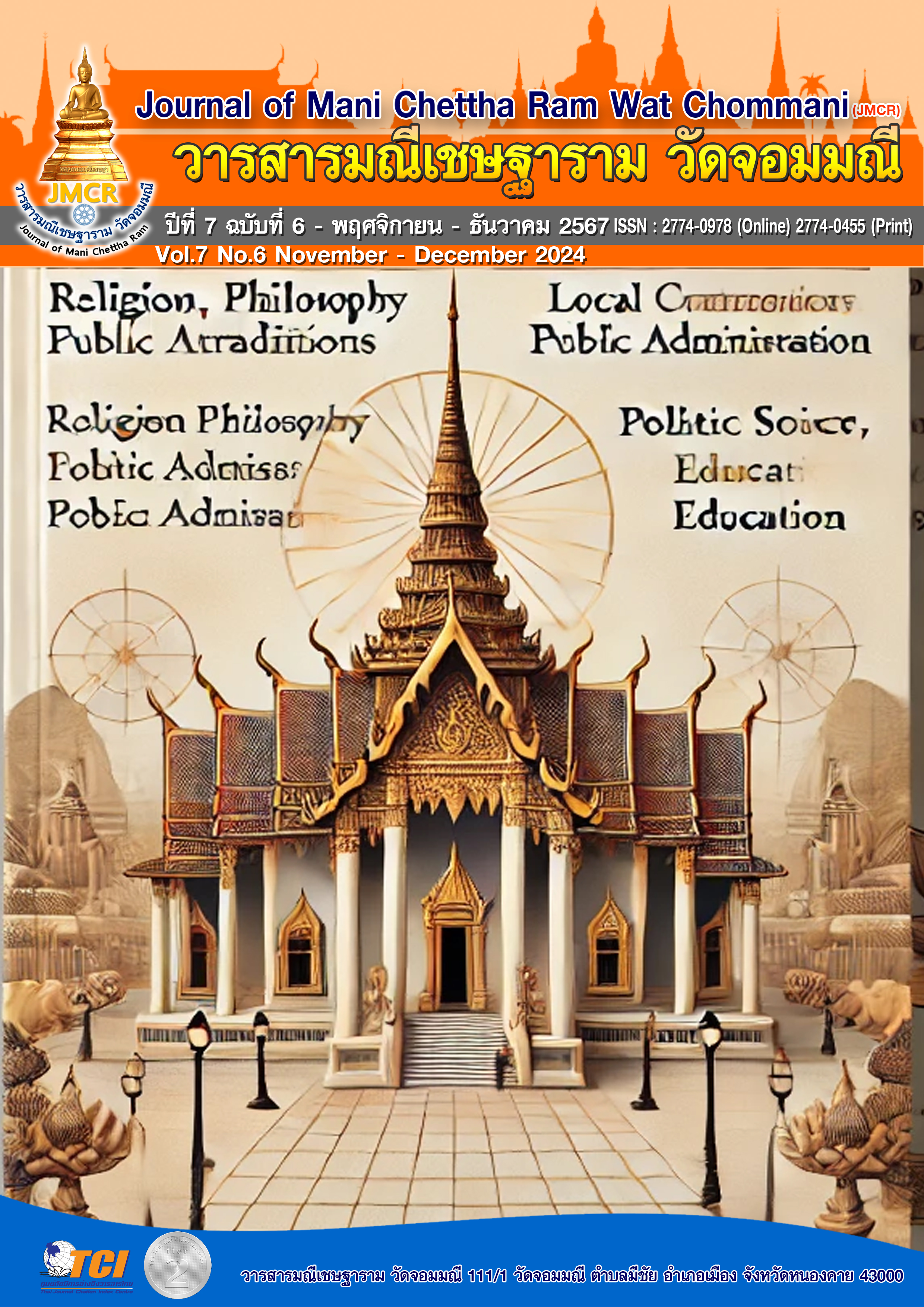EVALUATION AND DEVELOPMENT OF DOCTORAL PROGRAM IN EDUCATIONAL ADMINISTRATION IN THE DIGITAL AGE: A CASE STUDY OF MAHAMAKUT BUDDHIST UNIVERSITY, SRILANCHANG CAMPUS
Keywords:
Program Evaluation, Educational Administration, Digital Age, Buddhist PrinciplesAbstract
The objectives of this research were to: 1) evaluate the Doctor of Education Program in Educational Administration using CIPPI Model,
2) study stakeholders' opinions, 3) analyze strengths, weaknesses, opportunities, and threats, and 4) propose guidelines for program development. This qualitative research employed in-depth interviews, focus group discussions, classroom observations, and document analysis. Key informants included administrators, lecturers, current students, alumni, and employers. Data were analyzed using content analysis and thematic analysis.
The findings revealed that: 1) The program aligned with the university's context and mission, integrated digital technology and Buddhist principles, resulting in graduates meeting professional standards and creating positive impacts on educational development; 2) Stakeholders were satisfied with blended learning management and technology application; 3) The program's strengths included Buddhist principles integration and flexible teaching system, but digital infrastructure and personnel skills needed improvement; 4) Development guidelines should emphasize curriculum modernization, digital leadership skills development, and strengthening cooperation with educational institutions.
References
ชัยยงค์ พรหมวงศ์. (2556). การพัฒนารูปแบบการประเมิน CIPPI Model.
มหาวิทยาลัยมหามกุฏราชวิทยาลัย. (2567). หลักสูตรศึกษาศาสตรดุษฎีบัณฑิต สาขาวิชาการ บริหารการศึกษา.
สุวิมล ว่องวาณิช. (2558). การวิจัยประเมินความต้องการจำเป็น (พิมพ์ครั้งที่ 3).กรุงเทพมหานคร: จุฬาลงกรณ์มหาวิทยาลัย.
Koehler, M. J., & Mishra, P. (2006). Technological pedagogical content knowledge: A framework for teacher knowledge. Teachers College Record.
Scriven, M. (1967). The methodology of evaluation. In R. W. Tyler, R. M. Gagne, & M. Scriven (Eds.), Perspectives of curriculum evaluation.
Stufflebeam, D. L., & Coryn, C. L. S. (2014). Evaluation theory, models, and applications.
Tyler Ralph W (1949). Basic Principia of Curriculum and Instruction . Chicago : the University of Chicago press.
World Economic Forum. (2020). Shaping the Future of the New Economy and Society. [Online]. Retrieved May 24, 2020 from https://www.weforum.org/platforms/shaping-the-future-of-the-neweconomy-and-society
Yin, R. K. (2018). Case study research and applications: Design and methods.




